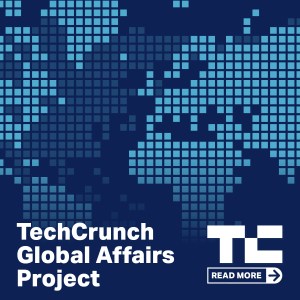Entertainment
Disinformation demands a collective defense

The TechCrunch Global Affairs Project examines the increasingly intertwined relationship between the tech sector and global politics.
When the term disinformation went mainstream after the 2016 election, it was largely in reference to state actors targeting political campaigns. Despite vigilance and much effort by government, the nature of the threat continues to shift faster than democracies can adapt. State actors, financially motivated disinformation-for-hire outfits and ideologically driven individuals are spreading disinformation that targets businesses, individuals and governments alike.
Now well into a U.S. election year and with tumultuous shifts in the geopolitical landscape underway, we anticipate an increase in disinformation campaigns targeting democratic institutions and private sector entities. With regulation stalled and limited protection from government, companies need to take on today’s threat themselves if they are to protect their ability to operate tomorrow.
In just the last two years, disinformation campaigns have caused significant damage to brand, reputation and value. In 2020, the online retailer Wayfair experienced an attempt by QAnon conspiracy theorists — who gained notoriety for targeting politicians with baseless accusations of corruption and abuse — to convince consumers that the company was trafficking children with its furniture deliveries. These ludicrous claims were ignored by many but believed by enough that they inspired calls for boycotts, attempts to manipulate the company’s stock value, posting physical locations of executives’ home and office addresses, and efforts to grind call center operations to a halt by flooding phone lines.
More recently, disinformation campaigns have leveraged false narratives about pharmaceutical companies, driven crypto scams and coin pumping, and attempted to manipulate consumer trust in high-tech solutions, such as space technologies, electric vehicles and vaccines. In just one example, our organization, Alethea Group, conducted an investigation in 2020 in which we assessed a network operated by Chinese billionaire Guo Wengui and former adviser to President Trump Steve Bannon was manipulating QAnon-related conversations in an attempt to spread election conspiracies. But the network was not just targeting elections, it was also mentioning private companies and prominent brands, including travel and hospitality, food, beverage and technology companies.
As the threat has evolved, regulations governing the digital space have not kept up, and the agencies that have historically sought to defend us against disinformation face an asymmetry that is difficult to overcome alone. A combination of legislative and bureaucratic inertia, limitations on the collection of social media data and a failure to develop new technology solutions catered to the threat have only exacerbated this asymmetry, with government entities often having insufficient resources to defend against the full threat landscape.
If organizations are unable to rely on government to defend them in the digital sphere, the private sector must lead in protecting customers, employees and financial bottom lines. By implementing strategies to catch nascent disinformation campaigns before they gain momentum, companies can mitigate malign attempts to manipulate their brands, reputations, stock prices and consumer trust.
In addition to defending against reputational harm through launching precision messaging campaigns rooted in fact, there are often opportunities to seek recourse against those launching disinformation campaigns by exposing their efforts or taking legal action. And by sharing information with the government, companies can also increase situational awareness that enables law enforcement and the intelligence community to work within authorities to act against those seeking to harm U.S. interests.
Disinformation is not only a threat to democracy; it’s a threat to our economy as well. This means that businesses and individuals — not just government agencies — have an important role to play in exposing and mitigating malign influence efforts, in protecting themselves and their economic interests, and in helping to defend our society writ large. Companies can act to protect consumers and shareholders in ways that government cannot, by working to uncover and expose the threat actors targeting them and pursuing a variety of remediation options ranging from legal action to public awareness campaigns. Indeed, our collective democratic and economic interests will depend upon it.
-

 Entertainment7 days ago
Entertainment7 days agoWhat’s new to streaming this week? (Jan. 17, 2025)
-

 Entertainment6 days ago
Entertainment6 days agoExplainer: Age-verification bills for porn and social media
-

 Entertainment6 days ago
Entertainment6 days agoIf TikTok is banned in the U.S., this is what it will look like for everyone else
-

 Entertainment5 days ago
Entertainment5 days ago‘Night Call’ review: A bad day on the job makes for a superb action movie
-

 Entertainment6 days ago
Entertainment6 days agoHow ‘Grand Theft Hamlet’ evolved from lockdown escape to Shakespearean success
-

 Entertainment6 days ago
Entertainment6 days ago‘September 5’ review: a blinkered, noncommittal thriller about an Olympic hostage crisis
-

 Entertainment6 days ago
Entertainment6 days ago‘Back in Action’ review: Cameron Diaz and Jamie Foxx team up for Gen X action-comedy
-

 Entertainment6 days ago
Entertainment6 days ago‘One of Them Days’ review: Keke Palmer and SZA are friendship goals























